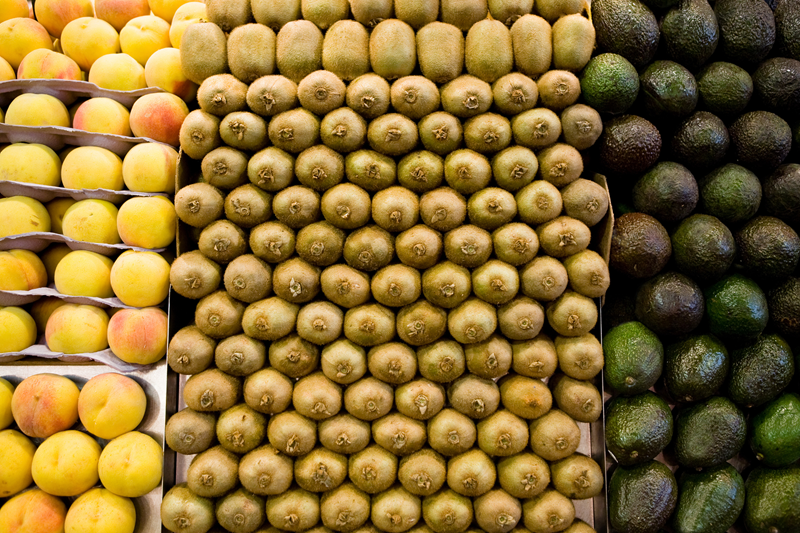Horticulture is big business for the New Zealand economy, generating $7.066 billion in export revenue in 2023 - 12% of all food and fibre export revenue. The sector provides tens of thousands of jobs and plays a key role in feeding not just our nation, but those overseas.
While there are many opportunities within the industry, there are also challenges. Weather conditions, geopolitical tensions, and fluctuating demand all impact horticulture in different ways. The kiwifruit and avocado sectors are prime examples of this market volatility, with growers experiencing mixed fortunes across the country.
Kiwifruit stays golden
New Zealand is known around the world for its kiwifruit, and 2024 has been no exception. After recovering from the impacts of recent cyclone damage and wet summers, this year’s crops have rebounded and we’re now seeing a much more favourable year than the two prior. The introduction of the Accredited Employer Work Visa scheme has also helped – before this, there were considerable labour issues within the sector that impacted the quality of the fruit exported, and in some cases led to fruit being rejected from overseas markets.
Now, the Ministry for Primary Industries is forecasting kiwifruit export revenue to increase by 28% in the 2024/25 season after two years of declining revenue, with international demand still proving strong for our fruit – especially the new red kiwifruit. However, although measures have been put in place to alleviate labour shortages faced in the Bay of Plenty and other horticultural-led regions, growers face the challenge of finding skilled labour and upskilling their labour force that has been brought into the industry.
Looking ahead, if weather conditions remain stable, we can expect another bumper season for kiwifruit in 2025. In terms of opportunities, we’re seeing businesses explore innovative technologies - including using robots in packhouses – to help maximise efficiency and improve operations.

Australia’s avocado appetite hits growers hard
While the kiwifruit industry thrives, avocado growers are facing more challenging conditions. 2023 was a bad season for growers with La Niña weather conditions leading to poor fruit quality and quantity. Much of the product wasn’t export-quality, which led to the domestic market becoming flooded with cheaper fruit. In 2024, the more settled weather has produced better quality avocados, but the export market has changed. Australia, historically a major market for New Zealand avocados, has significantly increased its own domestic production, leading to a dramatic reduction in the volume of fruit exported from New Zealand.
As a result, avocado export revenue fell 52% from the previous season, the lowest avocado export revenue generated in more than a decade. And with a quieter export market, prices have dropped. Some orchards are avoiding picking fruit due to the high cost of picking and packing not matching the potential return, and we are also seeing some struggling businesses being put up for sale.
The industry is working hard to open up other export markets, with Canada and North America showing positive signs of growth. And there are gains to be made in the avocado oil sector, where cheaper and poorer quality fruits can be used to generate higher margins.
Top tips for agriculture businesses
Whether your horticulture business is flourishing or struggling, there are things you can focus on to help navigate the current conditions.
-
While the kiwifruit industry is buoyant, high interest rates are hitting hard. This is where it’s critical to get guidance from a trusted adviser. Some growers are turning to interest-only repayments, while others have built scenario-based cash flows in the event an orchard has to be sold. If you’re experiencing financial pressures, it’s important to have proactive conversations with your bank and provide them with the right information to ensure you get the right support.
-
Similarly, keep your accountant informed of any cash flow problems you’re having. Focus on forecasting to help decide whether to pick fruit, as sub-quality fruit incurs removal costs that may not make it worth picking in the first place.
-
Be aware of Zespri’s compliance requirements and involve them sooner rather than later, especially if you’re struggling.
-
Get your tax structures right first time - your trusted adviser can help. It’s difficult to untangle tax structures once you’ve started operations, so ensure you do the right thing from day one.
-
Speak to your neighbour, especially if you’re new to the industry. The horticulture community is close-knit, and people are happy to help each other and share experiences.
-
Avocado growers could partner with oil producers to diversify their business models and take advantage of the more favourable market for avocado oil.
Further support
For those thinking about entering the horticultural industry, it’s important to speak to your trusted adviser for support with your due diligence. Look at what not only domestic but also what international markets are doing as well.
At BDO, our horticulture team are experts in their field. Whether you’re growing avocados, kiwifruit or another product, we can help you reach your business goals.
For more, reach out to your local BDO adviser or read our agribusiness insights.